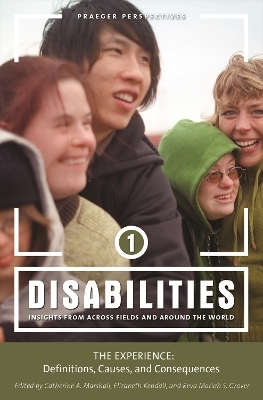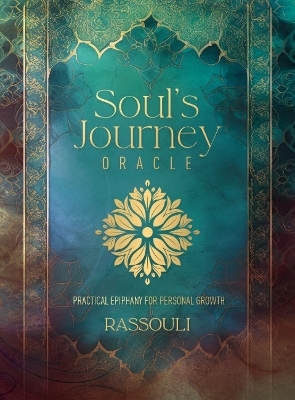
Disabilities
Praeger Publishers Inc
978-0-313-34604-0 (ISBN)
In this three-volume set, experts from around the world spotlight the latest research on physical and psychological disabilities, as well as the social, legal, and political issues that come to bear on those people affected. These authors teach us what the disabilities are, how common they have become, what challenges people with disabilities face, what treatments are available, and whether new promising efforts for rehabilitation are on the horizon.
We also learn, in these volumes, about social actions that have advanced human rights for people with disabilities in countries around the world. Yet, we learn that in these same countries, discriminatory actions against people with disabilities continue to occur. The impact of different cultural beliefs about disability are explored and these beliefs are juxtaposed against legislative responses. In all three volumes, people with disabilities share their personal narratives about events they have faced in society. They provide rich examples of how culture, social interactions, and legislation can impact on people.
Catherine A. Marshall is a Research Professor in the Department of Educational Psychology at Northern Arizona University. She is also an Adjunct Professor at the Centre for National Research on Disability and Rehabilitation at Griffith University in Australia and a Senior Scholar with the University of Arizona National Center of Excellence in Women's Health. Marshall has been involved with rehabilitation research for 20 years, and has worked as a counselor or educator in rehabilitation for 30 years. She is the Founder and President of the Women's International Leadership Institute. Elizabeth Kendall is Professor of Disability and Community Rehabilitation at Griffith University, and Associate Director of the Disability, Injury and Rehabilitation Program at the Center for National Research on Disability and Rehabilitation Medicine. She has been researching traumatic injury and disability for more 17 years. She completed her PhD on coping following traumatic brain injury and received the Dean's Commendation for Outstanding Thesis in 1997. Martha E. Banks is a Research Neuropsychologist, and has across 30 years worked as a clinician, researcher and professor. She is a former Professor in the Department of Black Studies at The College of Wooster. Banks is the 2008-2009 President of the Society for the Psychology of Women. A past Chair of the American Psychological Association's Women in Psychology Committee and a member of APA's Council of Representatives, she was presented with an APA Presidential Citation in 2008. Reva Mariah S. Gover is a writer/consultant. Currently she lives and works in Tucson, Azizona.
Disabilities V1
Foreword ix
Thomas Bornemann
Preface xiii
Paul Leung
Introduction xix
Chapter 1. How Rich and Fulfi lled My Life Has Been: A Personal
Perspective of Mobility "Impairment" 1
Ela Yazzie-King
Chapter 2. Understandings of the Disability Concept: A Complex
and Diverse Concept 5
Marianne Hedlund
Chapter 3. Disability Harms: Exploring Internalized Ableism 19
Fiona Kumari Campbell
Chapter 4. But Stroke Happens to Older People Doesn't It?
The Experiences of "Young" People Following Stroke 35
Tara Catalano and Elizabeth Kendall
Chapter 5. "Come Sit with Me; Let's Yarn Together for a
Little While": Resilience Factors in Facing
Cardiovascular and Emotional Disabilities 55
Lauraine Barlow
Chapter 6. Disability in Arab Societies 63
Numan Gharaibeh
Chapter 7. We Can Cry Later: A Story of Surviving Cancer 81
Paige Stager
Chapter 8. Disability as a Human Perception: Personal and
Professional Reactions to American Indian Families'
Narratives about Their Children's Disabilities 87
R. Cruz Begay, Betty G. Brown, and Roger G. Bounds
Chapter 9. Traumatic Brain Injury and Disability as a
Consequence of Assault: Focus on Intimate
Partner Violence 107
Rosalie J. Ackerman and Martha E. Banks
Chapter 10. "I Thought I Was Going to Live Forever" 123
Reva Mariah S. Gover
Chapter 11. Coping Following Traumatic Brain Injury:
Lessons from Autobiographical Accounts 129
Elizabeth Kendall, Melissa Kendall, and
Heidi Muenchberger
Chapter 12. Functional and Psychosocial Aspects of Late-Onset
Hearing Loss 143
Charlene M. Kampfe
Chapter 13. Disability in Islam: Insights into Theology, Law,
History, and Practice 157
Isra Bhatty, Asad Ali Moten, Mobin Tawakkul,
and Mona Amer
Chapter 14. Living with a Learning Disability and Other
Marginalized Statuses: A Multilevel Analysis 177
Katherine E. McDonald, Christopher B. Keys,
and Fabricio E. Balcazar
Chapter 15. Persons and Nonpersons: Intellectual Disability,
Personhood, and Social Capital among the Mixe
of Southern Mexico 193
George S. Gotto IV
Chapter 16. Sharing My Strengths and Winning against Obesity 211
Michelle Pieper
Chapter 17. The Discursive Construction and Invalidation
of Disability 213
Stephen Lee Hodgkins and Sid Baility
Chapter 18. Shubharthis in India: Destigmatizing
Schizophrenia, a Move toward Inclusion 231
Anuradha Sovani
Chapter 19. Excerpts from Meditations of the Heart on the
Workings (or Not) of the Hand 243
Bernadette Blount Salley
Chapter 20. A Taonga Is a Taonga in Any Language 249
Huhana Hickey
Afterword: Reclaiming Globalization for Disability—Further Insights 257
Index 267
About the Advisory Board Members 273
About the Editors and Contributors 277
Disabilities V2
Foreword ix
Thomas Bornemann
Preface xiii
Paul Leung
Introduction xix
Chapter 1. Creating Mental Health Disability through
Inadequate Disaster Response: Lessons from
Hurricane Katrina 1
Paula A. Madrid, Roy Grant, and Rachel Rosen
Chapter 2. Autonomy and Disability: A Quest for Quality of Life 17
Bedarius Bell Jr., Shelley R. Henthorne, Doris Adams
Hill, Jane W. Turnbull-Humphries, and
Stephanie T. Zito
Chapter 3. Children Who Care for Their Parents: The Impact
of Parental Disability on Young Lives 39
Kenneth I. Pakenham
Chapter 4. The Digital Town Square: Information and
Communication Technology as an Opportunity
and a Barrier to Social Relations for Disabled Youth 61
Sylvia Söderström
Chapter 5. Understanding the Experience of Parenting a
Child with Autism 81
Samantha Bursnall, Eilis Kennedy, Rob Senior,
and Jo Violet
Chapter 6. Through My Rose-Colored Glasses:
When Disability Strikes a Health Professional 99
Melissa Kendall
Chapter 7. Australian Indigenous Health and the SIPES
Model of Well-Being: The Legacy of Lauraine Barlow 111
Leda Barnett and Dianne Barnett
Chapter 8. "Surely Someone Can Support Me":
A Caregiver's Perspective 129
Tara Catalano and Debra Domalewski
Chapter 9. Navigating Societal Norms: The Psychological
Implications of Living in the United States
with Disability 139
Jennifer Gibson
Chapter 10. Disabilities and Employment in the United States,
Kenya, and the Philippines: A Race and Class
Perspective 151
Elaine A. Burke and Patricia Denise Lopez
Chapter 11. Youth with Intellectual Disabilities in Foster Care:
Examining Accompanying Risks and Service
Outcomes 169
Crystal L. Cederna, Melissa Palguta, Jacqueline
Remondet Wall, and Steven M. Koch
Chapter 12. Mental Disorder, Disability, and Society 185
David Pilgrim and Anne Rogers
Chapter 13. Parental Perspectives on Disability:
The Story of Sam, Anna, and Marcus 201
Heather Douglas and Sally Borbasi
Chapter 14. Bullying of Children with Developmental
Disabilities: An Ecological Approach to Program
Development 219
Rocky Liesman
Chapter 15. Mosaic Refl ections of American Muslims on
Disability: Challenges and Solutions 239
Mobin Tawakkul, Isra Bhatty, and Mohammed Yousuf
Chapter 16. Voices of People with Disabilities (PWD) in Vietnam 257
David N. Morrissey
Chapter 17. Substance Use Disorders and Disability:
An Examination of Co-occurring Disorders in Nigeria 275
Stephanie L. Lusk and Teresia M. Paul
Chapter 18. Chasing Your Dreams 289
Connie Susa
Afterword: Reclaiming Globalization for Disability—Further Insights 301
Index 311
About the Advisory Board Members 319
About the Editors and Contributors 323
Disabilities V3
Foreword ix
Thomas Bornemann
Preface xiii
Paul Leung
Introduction xix
Chapter 1. Evolution of Disability Policies and Practices in the
United States: Implications for Global Implementation
of Person-Centered Planning 1
Carol J. Blessing, Thomas P. Golden, and
Susanne M. Bruyère
Chapter 2. Global Networking, Social Justice, and Implications
for Chronic Illness and Disability 17
Elizabeth Kendall and Catherine A. Marshall
Chapter 3. Disability in the State of Qatar 27
Asma Al Attiyah and Marcellina Mian
Chapter 4. Attitudes toward Inclusion in Primary Education
in Greece 43
Maria Agorastou, Efrosini Kalyva, Efthalia Kaderoglou,
and Filippos Stefanidis
Chapter 5. Vocational Rehabilitation at a Cancer Agency in
Canada: A Pioneer and Model Service When Cancer
Results in Disability 63
Maureen Parkinson
Chapter 6. Mental Health Care in Turkey: Present Status and
Future Directions 83
Rebecca Spirito-Dalgin, Tuncay Ergene,
Joseph Marrone, and Kerim Munir
Chapter 7. What's All This about a "World" Wide Web?
The Need and Mandate for Web Accessibility 95
Joe E. Wheaton and Patrizia Bertini
Chapter 8. Disability, Legal Mobilization, and the Challenges
of Capacity Building in Sri Lanka 111
Fiona Kumari Campbell
Chapter 9. Disability Management: A Global Response to
Disability in the Workplace 129
Nicholas Buys and Christine Randall
Chapter 10. When Systems Hurt Rather than Heal: Outcomes
Following Pyschological Injury at Work 145
Elizabeth Kendall and Heidi Muenchberger
Chapter 11. Equal Treatment in Working Life for People with
Disabilities: Sweden and Norway Perspectives 155
Marianne Hedlund, Bodil J. Landstad, and
Åsa Svensson
Chapter 12. Wellness Rhetoric: Implications for Policy and
Practice in Australian Childhood Health and
Disability Services 167
Lauren J. Breen and Sherry Saggers
Chapter 13. Health Care, Disability, and Living with Chronic
Illness: Rehabilitation and Beyond 181
Marie A. DiCowden
Chapter 14. Acting for Advocacy: An Innovative Team Training
Approach to Self-Advocacy 201
Deborah Zuver, Robyn Dorton, Wilson Finks, and
Kira Fisher
Chapter 15. International Accessibility: Refl ections on the Value
of Disability Rights Law, Based on Travel to Athens
and Rome 215
Angela Kuemmel and Rebecca Kuemmel
Chapter 16. Disability Policy—A Canadian Perspective:
A Human Rights Approach to Providing Supports
and Services 227
Cheryl L. Crocker
Chapter 17. Advocacy in the 21st Century: An Integrated Model
for Self-Advocates, Parents, and Professionals 245
Steven M. Koch, Katy Beggs, Joy Bailey, and
Jacqueline Remondet Wall
Chapter 18. A Journey of Self through the Lives of Others:
Historical Removal, Displacement, and Sanctioned
Injustice 267
Rae Kelly
Chapter 19. States of Exceptionality: Provisional Disability,
its Mitigation, and Citizenship 273
Fiona Kumari Campbell
Chapter 20. Disability in Kenya: A Situational Analysis 285
Edward O. Manyibe, George I. Mamboleo,
George C. T. Mugoya, and Charlene M. Kampfe
Chapter 21. Changing the System: "Strong Indigenous
Women—We are the Voice" 299
Robyn Burnett
Afterword: Reclaiming Globalization for Disability—Further Insights 305
Index 315
About the Advisory Board Members 325
About the Editors and Contributors 329
| Erscheint lt. Verlag | 30.4.2009 |
|---|---|
| Vorwort | Thomas Bornemann |
| Sprache | englisch |
| Gewicht | 2722 g |
| Themenwelt | Sachbuch/Ratgeber ► Gesundheit / Leben / Psychologie |
| Geisteswissenschaften ► Psychologie | |
| Sozialwissenschaften ► Soziologie | |
| ISBN-10 | 0-313-34604-6 / 0313346046 |
| ISBN-13 | 978-0-313-34604-0 / 9780313346040 |
| Zustand | Neuware |
| Haben Sie eine Frage zum Produkt? |
aus dem Bereich


